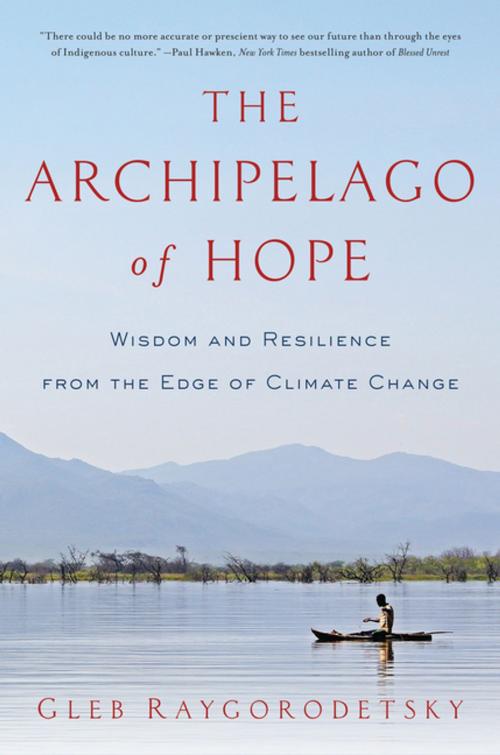The Archipelago of Hope: Wisdom and Resilience from the Edge of Climate Change
Nonfiction, Science & Nature, Nature, Environment, Ecology, Environmental Conservation & Protection, Social & Cultural Studies, Social Science, Anthropology| Author: | Gleb Raygorodetsky | ISBN: | 9781681775968 |
| Publisher: | Pegasus Books | Publication: | November 7, 2017 |
| Imprint: | Pegasus Books | Language: | English |
| Author: | Gleb Raygorodetsky |
| ISBN: | 9781681775968 |
| Publisher: | Pegasus Books |
| Publication: | November 7, 2017 |
| Imprint: | Pegasus Books |
| Language: | English |
Winner of the Nautilus Book Award Grand Prize
A Library Journal "Best Book of the Year"
A Medium "100 Books You Must Read"
An enlightening global journey reveals the inextricable links between Indigenous cultures and their lands—and how it can form the foundation for climate change resilience around the world.
One cannot turn on the news today without a report on an extreme weather event or the latest update on Antarctica. But while our politicians argue, the truth is that climate change is already here. Nobody knows this better than Indigenous peoples who, having developed an intimate relationship with ecosystems over generations, have observed these changes for decades. For them, climate change is not an abstract concept or policy issue, but the reality of daily life.
After two decades of working with indigenous communities, Gleb Raygorodetsky shows how these communities are actually islands of biological and cultural diversity in the ever-rising sea of development and urbanization. They are an “archipelago of hope” as we enter the Anthropocene, for here lies humankind’s best chance to remember our roots and how to take care of the Earth. These communities are implementing creative solutions to meet these modern challenges. Solutions that are relevant to the rest of us.
We meet the Skolt Sami of Finland, the Nenets and Altai of Russia, the Sapara of Ecuador, the Karen of Myanmar, and the Tla-o-qui-aht of Canada. Intimate portraits of these men and women, youth and elders, emerge against the backdrop of their traditional practices on land and water. Though there are brutal realties?pollution, corruption, forced assimilation—Raygorodetsky's prose resonates with the positive, the adaptive, the spiritual—and hope.
Winner of the Nautilus Book Award Grand Prize
A Library Journal "Best Book of the Year"
A Medium "100 Books You Must Read"
An enlightening global journey reveals the inextricable links between Indigenous cultures and their lands—and how it can form the foundation for climate change resilience around the world.
One cannot turn on the news today without a report on an extreme weather event or the latest update on Antarctica. But while our politicians argue, the truth is that climate change is already here. Nobody knows this better than Indigenous peoples who, having developed an intimate relationship with ecosystems over generations, have observed these changes for decades. For them, climate change is not an abstract concept or policy issue, but the reality of daily life.
After two decades of working with indigenous communities, Gleb Raygorodetsky shows how these communities are actually islands of biological and cultural diversity in the ever-rising sea of development and urbanization. They are an “archipelago of hope” as we enter the Anthropocene, for here lies humankind’s best chance to remember our roots and how to take care of the Earth. These communities are implementing creative solutions to meet these modern challenges. Solutions that are relevant to the rest of us.
We meet the Skolt Sami of Finland, the Nenets and Altai of Russia, the Sapara of Ecuador, the Karen of Myanmar, and the Tla-o-qui-aht of Canada. Intimate portraits of these men and women, youth and elders, emerge against the backdrop of their traditional practices on land and water. Though there are brutal realties?pollution, corruption, forced assimilation—Raygorodetsky's prose resonates with the positive, the adaptive, the spiritual—and hope.















